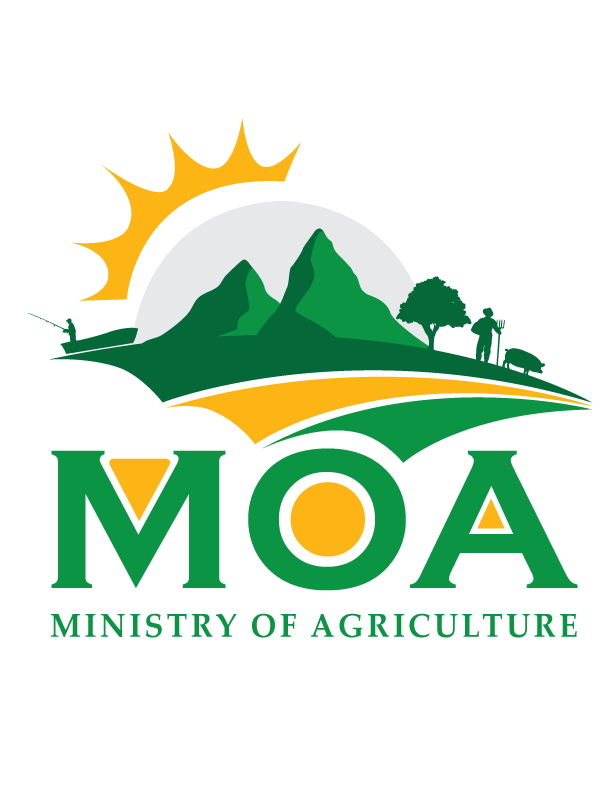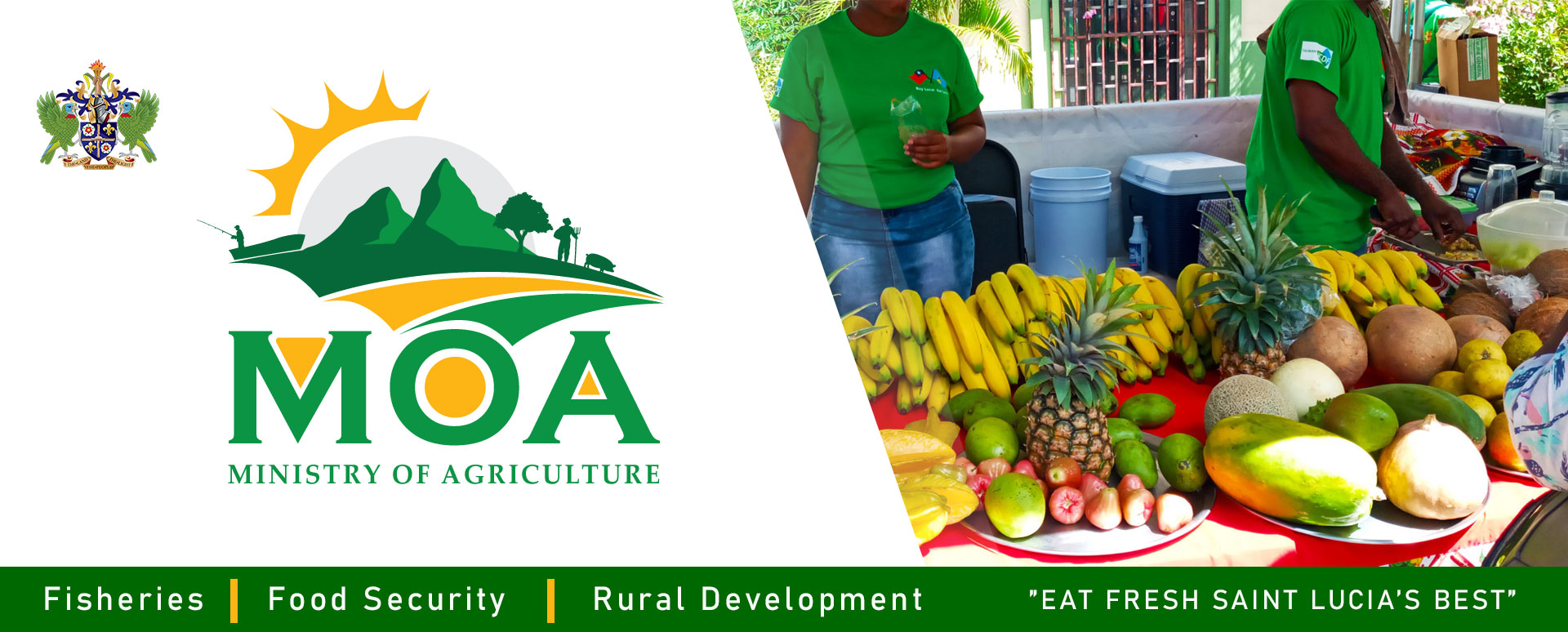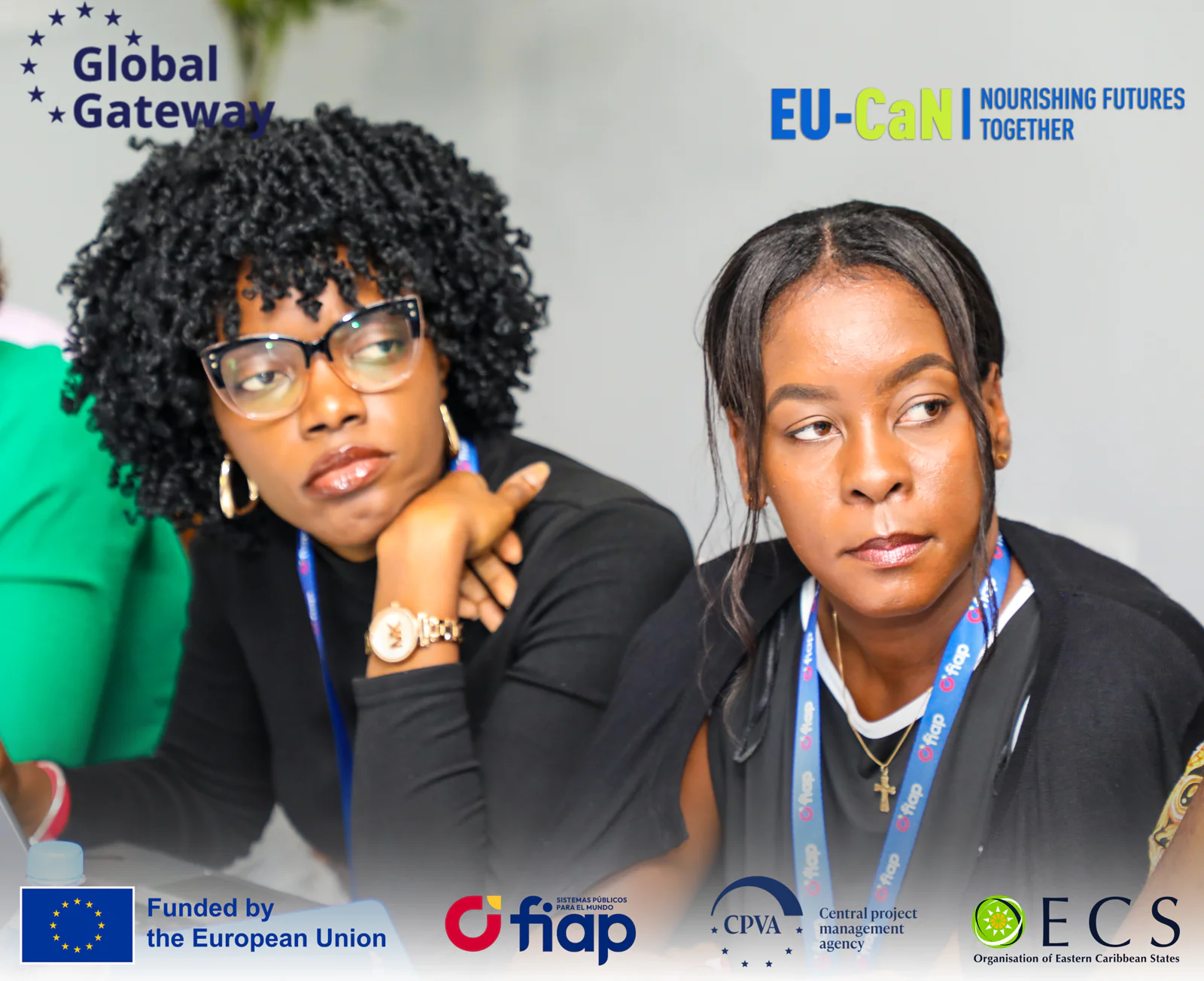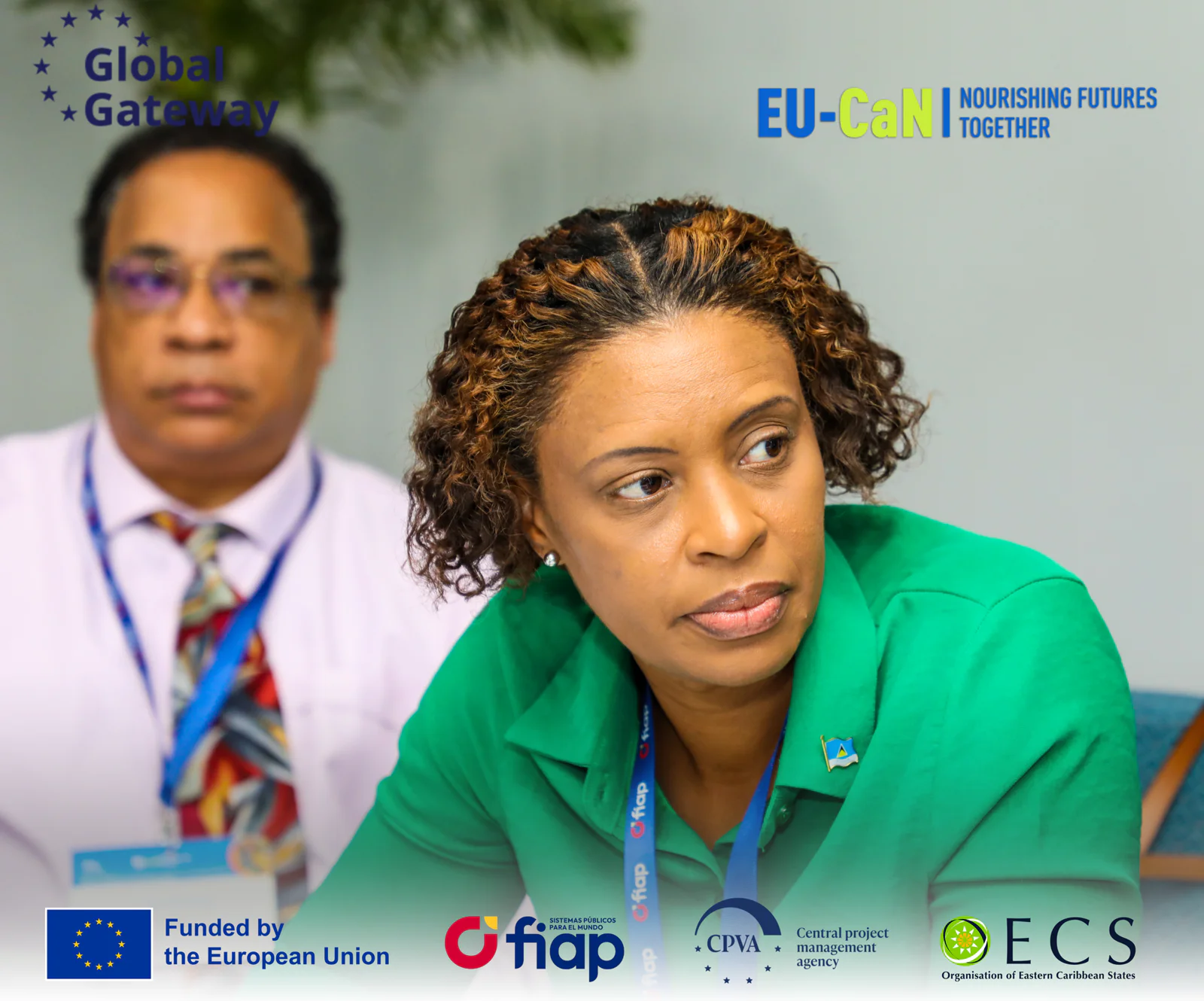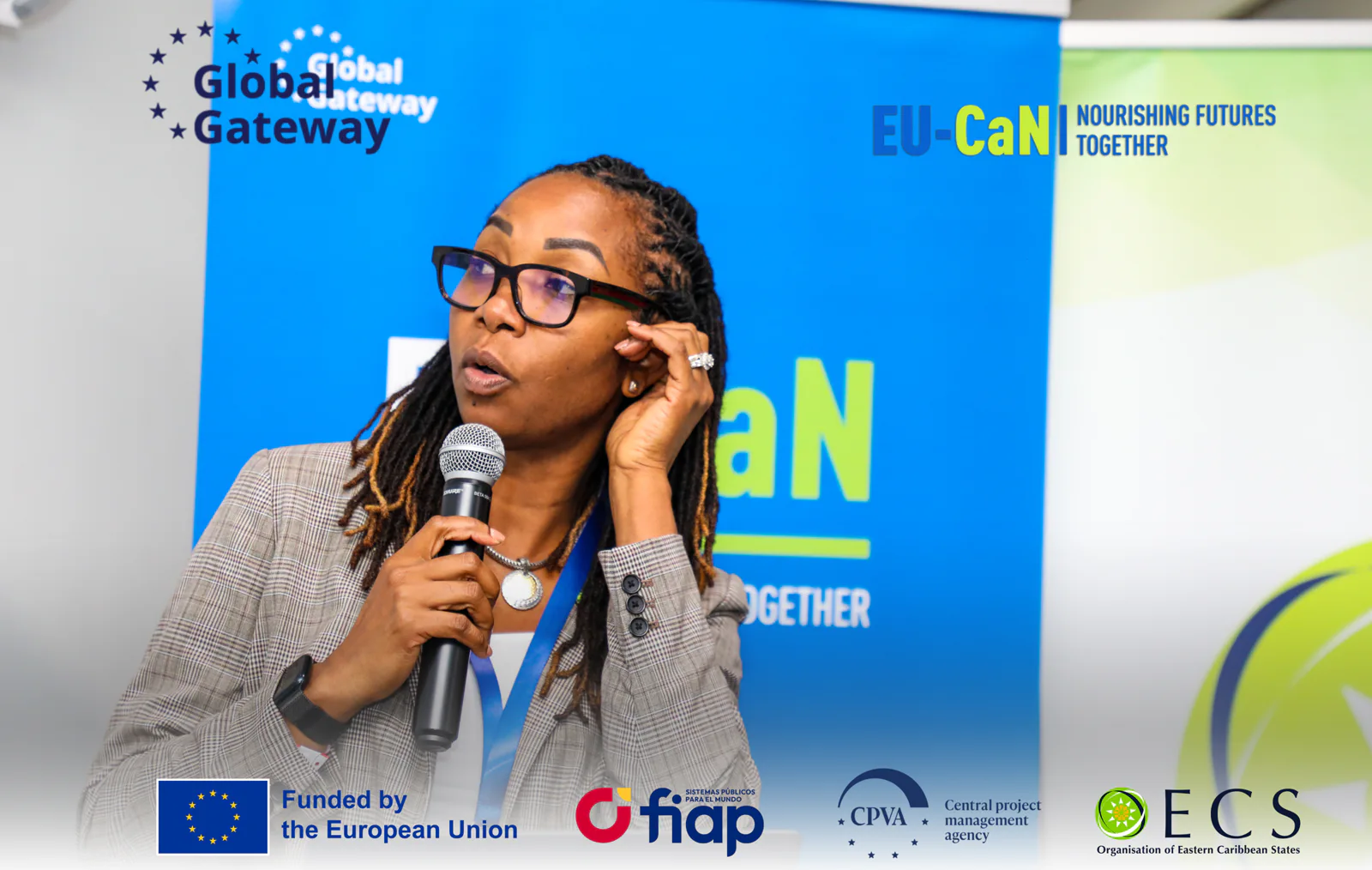(FIAP) and the OECS Commission convene a regional workshop on “The Inclusiveness of Social Protection in the Agriculture and Fisheries Sector” to strengthen National capacity for evidence-based agricultural development planning
OECS Press Release - June 5, 2025
The EU-Caribbean Nutrition (EUCAN) project, implemented by the Fundación para la Internacionalización de las Administraciones Públicas (FIAP) and Central Project Management Agency (CPVA) in collaboration with the Organisation of Eastern Caribbean States (OECS) Commission, conducted a three-day regional workshop from May 19 to 21, in Antigua and Barbuda, on the Inclusiveness of social protection systems in the agricultural and fisheries sector.
In the opening remarks, Permanent Secretary Walter Christopher of the Ministry of Agriculture, Antigua and Barbuda, identified the seminar as timely, recognizing the need for actionable solutions through greater collaboration between Ministries, International Development Partners (IDPs), and Civil Society Organizations. Mr Christopher challenged the meeting to ensure that nutrition-sensitive social protection systems remain paramount in the discussions. Mr Joel Richards, Officer-in-Charge of the Economic Affairs and Regional Integration Division (EARID), OECS Commission, provided data that shows the systemic importance of agriculture and fisheries, particularly in boosting food security. Mr Richards further highlighted the importance of addressing challenges within the sectors as pertinent to achieving the Sustainable Development Goals, citing these as a moral imperative and an economic necessity.
Bringing greetings on behalf of the Delegation of the European Union Delegation to Barbados, the Eastern Caribbean States, OECS, and CARICOM/CARIFORUM, Ms. Jeannine Blanchard, Project Officer, stressed the need to have robust social protection embedded into the National Social Security Systems and highlighted the need for an multi-sectoral approach for achieving this. The EUCaN Project Coordinator, Ms Teodora Diamantopoulos, further emphasized the need to combine policy and process while creating spaces for continued dialogue and collaboration.
Set within the context of our economic and social challenges of the region, including issues of economic uncertainty, vulnerability to shocks, high levels of youth unemployment, and the disproportionate representation of women among the unemployed, the workshop explored strategies to support the transition from the informal to the formal economy in the agricultural and fisheries sector in the OECS Member States.
Focused on exploring co-creation strategies for effective partnerships in social protection, the seminar featured presentations from regional and international development partners (IDPs), including The Food and Agriculture Organization (FAO), International Labour Organization (ILO), World Food Programme (WFP), and Inter-American Institute for Cooperation on Agriculture (IICA) who shared best practices on inclusive social protection systems in the Agriculture sector, shock-responsive social protection, universal social protection for climate justice and just transition and linkages between social protection and formalization focusing on women and youth. The inclusion of Spanish institutions such as the Spanish Youth Institute (INJUVE) and the Agency for Agricultural and Fisheries Management of Andalusia (Junta de Andalusia) ensured the sharing of Spanish and European practices and examples for the protection and inclusion of youth and women in agriculture and fisheries.
With joint representation from the Ministries of Agriculture, Social Development, and Social Security Schemes, the Member States presented national efforts for formalizing youth and women’s participation in the agriculture and fisheries sector. Identifying challenges within the unique spaces, these presentations highlighted the need for greater cross-ministry collaboration, the importance of community involvement, and the need for data-driven approaches to effectively identify and address vulnerable populations and thereby enhance coordination among relevant stakeholders.
Presentations by the OECS Commission featured an overview of the regional framework for addressing issues of social protection, equal access to quality social services, and empowerment across the life cycle on food security and broader economic and social development through the Social Inclusion and Social Protection (SISP) Action Plan and the Food and Agriculture Systems Transformation (FAST) Strategy. The Programme Director of the Health, Social Inclusion and Social Protection Unit, Dr. Roxanne Brizan-St Martin, highlighted the transformational role of social protection when working alongside economic policy to ensure sustainability and inclusivity. Mrs. Natasha Deterville-Moisse, Acting Head of the Economic Development Unit, highlighted the need to foster more cohesiveness and synergies in guiding the agriculture programme at the regional level.
Key advocacy messages by Civil Society Organization representatives included the need for inter-generational knowledge sharing and mentorship within the agriculture sector aimed at boosting youth participation and involvement. In co-creating strategies for effective CSO-government partnerships in social protection, the importance of policy supported by a strong legislative framework was emphasized. Continued advocacy, inclusion, and representation of youth and women in high-level advocacy spaces were discussed as critical in ensuring inclusive social protection in agriculture and fisheries.
Participants emphasised the need for more ACTION supported by real opportunities and programmes/initiatives that are youth-led and driven.
The EU-Caribbean Nutrition (EUCaN) Facility: Nourishing Futures Together is funded by the European Union, aimed at increasing the social inclusion of all actors in the food systems while enhancing equitable access to nutritionally adequate diets. It is part of the EU regional food security programme 2023 – 2027 that aims to improve the resilience and sustainability of the food system in the Caribbean.
